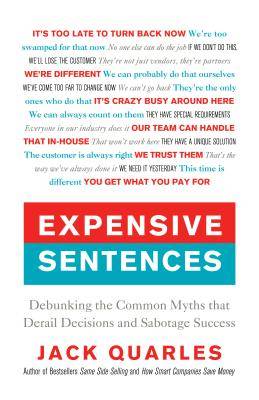
Before entering into any contract, it is always advisable to have that contract reviewed by an attorney. However, there may be reasons why it is not practical to have an attorney weigh in on a contract, or maybe you do not have any room in the budget to engage an attorney to review a contract.
If you do review a contract yourself, don’t make the mistake of only reviewing the main deal points in the contract, but also review the so called “legal boilerplate” that is found at the end of many contracts. To ignore that language could be a costly mistake. With that in mind, below is a brief list of some of the issues that you should keep in mind before signing a contract.
The first issue to be cognizant of — which seems like a no brainer — is to make sure that the parties to the contract are properly identified. Easy, right? You would be surprised. Over the years, I have seen an alarming number of contracts where one of the parties does not exist (sometimes more than one). When identifying the parties, the proper legal name of the entity should be used. For example, “ABC, Inc.” is not the proper legal name of a party — the place of incorporation (or organization for a limited liability company) should be included. So, if it is a Nevada corporation, the proper name is “ABC, Inc., a Nevada corporation.”
Usually buried in the “legal boilerplate” is another critical issue to be aware of: what jurisdiction and venue will govern any dispute between the parties. If all the parties are in Nevada, and the jurisdiction/venue to govern disputes is in Nevada, then it is not a big deal. However, if you are signing a contract with an out-of-state party, you should take note of the mandated jurisdiction/venue. The cost of litigation is bad enough when a dispute arises, but if the jurisdiction/venue for the contract is in Delaware, New York, or someplace other than Nevada, those litigation costs will quickly multiply (in addition to travel costs, you may need to engage attorneys in the mandated jurisdiction — oftentimes a more costly jurisdiction than Nevada).
Another issue: Are all the essential terms of the contract addressed in the contract? If not, they need to be.
Many times I have met with a client who is having a contract dispute over something the other party is (or is not) doing. When I look for that obligation in the contract, it does not exist. Too many times I have heard “Well, that is not in the contract, but he/she/they told/promised me this, that or the other.” Many contracts contain what is called an “integration clause” (also typically found in the “legal boilerplate”), which provides that the contract represents the complete and final accord between the contracting parties, and supersedes any and all associated oral agreements and understandings. So, make sure the contract contains all material terms.
One other clause often found in the “legal boilerplate” relates to the award of costs and attorney fees to the successful party in a dispute. If the other party breaches a contract, and you have to pay your attorneys to enforce that contract, without a fee/cost provision in the contract, it is likely you will have to eat those costs (even if successful). Most attorneys advise their clients to include an attorney fee provision. Of course, if there is a dispute, and you are on the losing side, you could be liable for the other sides fees/costs, so this is really a business decision — but one that should be evaluated and made consciously.
Finally, be aware of who is actually signing the contract. Specifically, do the parties signing the contract have the authority to do so? If one of the parties is an entity, does the person signing on behalf of the entity have the authority to sign and bind that entity? It is not always an obvious answer. However, at a minimum, you should take a look at who the officers/managers are for that entity (in Nevada, and many jurisdictions, the officers/managers are listed online with the applicable secretary of state).
Jeffrey J. Steffen is a seasoned real estate, construction and corporate transactional attorney with Hutchison & Steffen in Las Vegas. Reach him at 702-385-2500 or jeffsteffen@hutchlegal.com.






